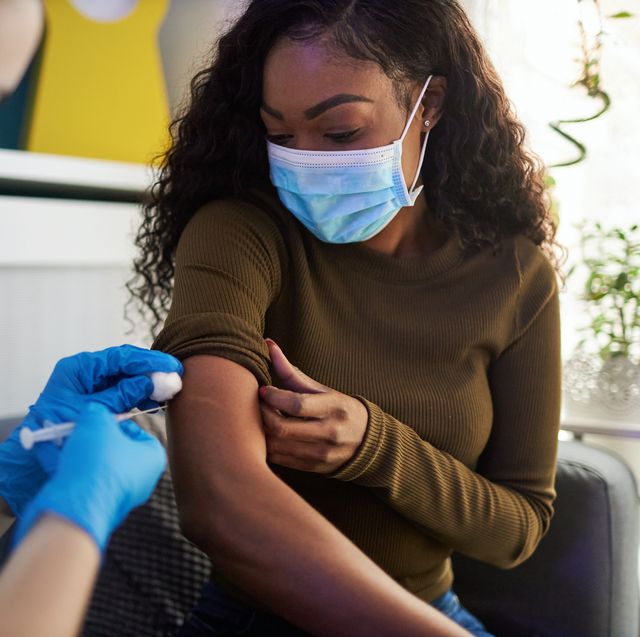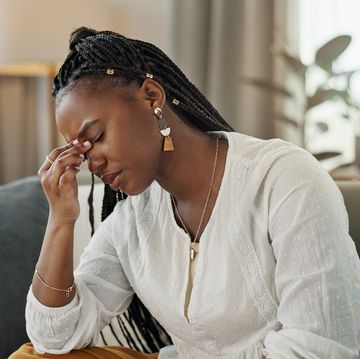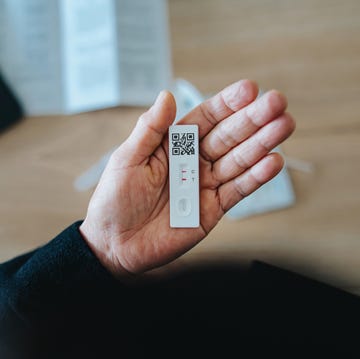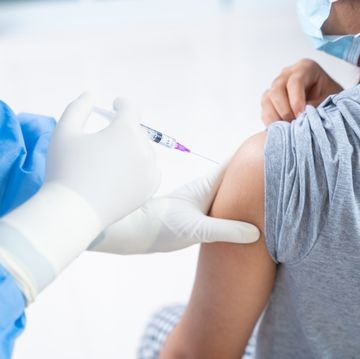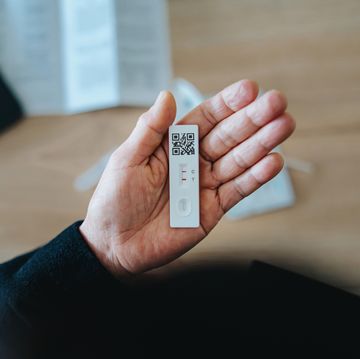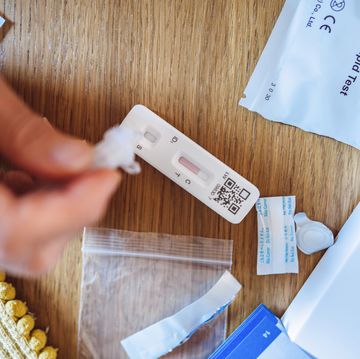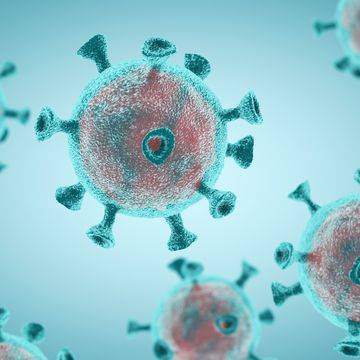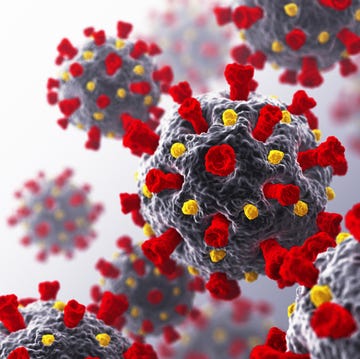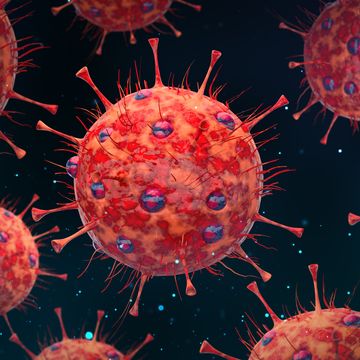Recently, the Centers for Disease Control and Prevention (CDC) released data on the number of people who still contracted COVID-19 after becoming fully vaccinated: There have been about 5,800 cases out of more than 75 million people who have been immunized (that’s about .007%).
Known as breakthrough infections, these cases are pretty rare but expected, according to Anthony Fauci, M.D., director of the U.S. National Institute of Allergy and Infectious Diseases.
“A ‘breakthrough infection,’ or a vaccine failure, is when a person contracts an infection despite being vaccinated against it,” Dr. Fauci said at a recent White House press briefing. “We see this with all vaccines in clinical trials. And in the real world, no vaccine is 100% efficacious or effective, which means that you will always see breakthrough infections regardless of the efficacy of your vaccine.”
In a statement to Prevention, the CDC said there has been “no unexpected patterns” in the cases. “Like is seen with other vaccines, we expect thousands of vaccine breakthrough cases will occur even though the vaccine is working as expected,” the statement said.
Even though your risk of a breakthrough infection is low, it’s understandable if you still have questions, especially as highly infectious variants continue to circulate throughout the country. Here’s what doctors want you to know.
First, a recap on effectiveness of the COVID-19 vaccines.
Data from clinical trials shows that the COVID-19 vaccines authorized for use are up to 95% effective at preventing symptomatic cases of the virus in people who are fully vaccinated. Here’s a breakdown of efficacy rate for each one:
- Pfizer-BioNTech: 95%
- Moderna: 94.1%
- Johnson & Johnson: 66.3%
It’s important to note, though, that the Johnson & Johnson vaccine has been temporarily “paused” in the U.S. due to six reported cases of rare but severe blood clots, although further evidence is needed to prove direct causation. “Right now, these adverse events appear to be extremely rare, per a joint statement from the CDC and Food and Drug Administration (FDA). The pause will continue out of an “abundance of caution” as the agencies conduct a thorough investigation.
So, how can you still get COVID-19 after you get the vaccine?
There are a few different ways this can happen, and the reasons fall into one of two camps: primary and secondary failure, says William Schaffner, M.D., an infectious disease specialist and professor at the Vanderbilt University School of Medicine.
“Primary failure is when you get vaccinated and you don’t get enough of an immune response to protect your body from infection,” he explains. This is more likely to happen in people with weakened immune systems such as older adults and those who have an underlying condition. Indeed, the CDC found that just over 40% of the reported breakthrough cases were in people aged 60 and older so far.
Clinical trials typically don’t include immunocompromised people, says Thomas Russo, M.D., professor and chief of infectious disease at the University at Buffalo in New York. “The efficacy [for elderly and immunocompromised people] may not be as high as the levels in the people in the clinical trials,” he says.
Dr. Schaffner agrees. “These people are not going to get 95% protection,” he says. “Instead, they may get 50% or even less.” The reason: Research has found that antibodies produced by vaccines tend to be less robust in older people.
Secondary failure refers to what happens when immunity fades over time, says infectious disease expert Amesh A. Adalja, M.D., senior scholar at the Johns Hopkins Center for Health Security. “Right now, we’re not really seeing secondary failure because not enough time has passed,” he says. Scientists are still studying how long the vaccines offer protection. Pfizer and Moderna have said their respective vaccines offer strong immunity for up to six months according to the data that’s available so far, but experts predict that it will likely last for up to a year.
Another potential cause of breakthrough cases could be COVID-19 variants, Dr. Russo says. While research has found that the vaccines are largely still effective against certain strains, questions still remain, especially in the case of B.1.351, the variant originally detected in South Africa, he says.
People can also become infected right before or after they’re vaccinated, Dr. Schaffner points out. “Suppose you got infected two days before you got the vaccine—before your immune system can respond to the vaccine—then the infection will take hold,” he says. “This could also happen if you became infected shortly after you got the vaccine.”
Finally, it’s important to remember that the vaccines are not a silver bullet and don’t prevent COVID-19 every single time—“95% is not 100%,” Dr. Russo notes.
How to tell the difference between COVID-19 symptoms and vaccine side effects
If you aren’t feeling well—but were recently vaccinated—you might be wondering if you have COVID-19. While there is some potential overlap between COVID-19 symptoms and vaccine side effects, there are a few distinct differences.
“Vaccine side effects are largely going to be injection site pain, and you may have some muscle aches and pains, fever, and a mild headache,” Dr. Adalja says. “They’re not going to last long—they should be done in a day or two.”
Vaccine side effects also shouldn’t include a cough, shortness of breath, or a loss of taste or smell—all potential signs of COVID-19.
If you’re having symptoms well after you’ve been vaccinated and they don’t seem to be improving, Dr. Schaffner recommends getting tested for COVID-19 just in case. “There is overlap between vaccine side effects and COVID-19 symptoms, no doubt,” he says. “If there is any uncertainty, please go get tested.”
This article is accurate as of press time. However, as the COVID-19 pandemic rapidly evolves and the scientific community’s understanding of the novel coronavirus develops, some of the information may have changed since it was last updated. While we aim to keep all of our stories up to date, please visit online resources provided by the CDC, WHO, and your local public health department to stay informed on the latest news. Always talk to your doctor for professional medical advice.
Go here to join Prevention Premium (our best value, all-access plan), subscribe to the magazine, or get digital-only access.
